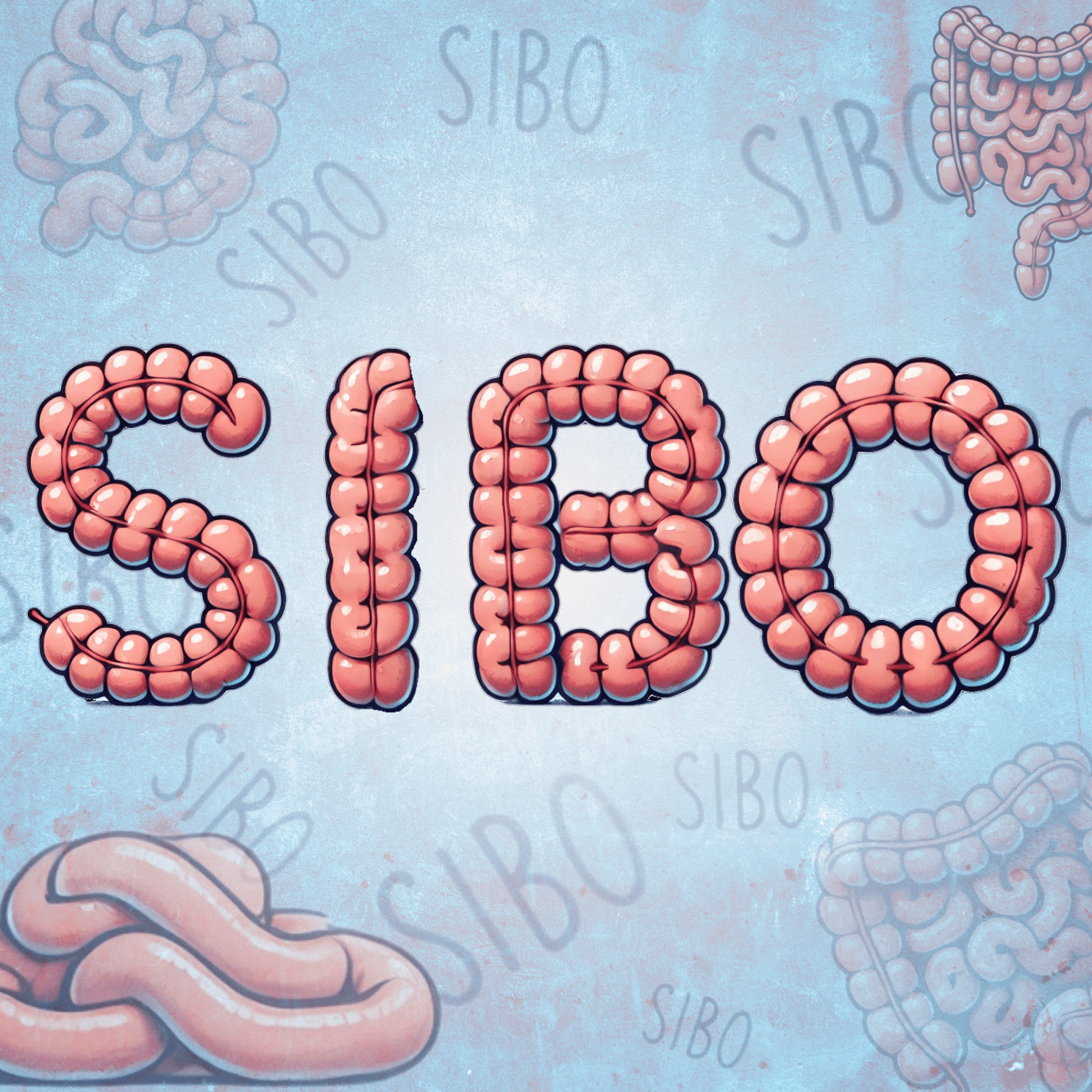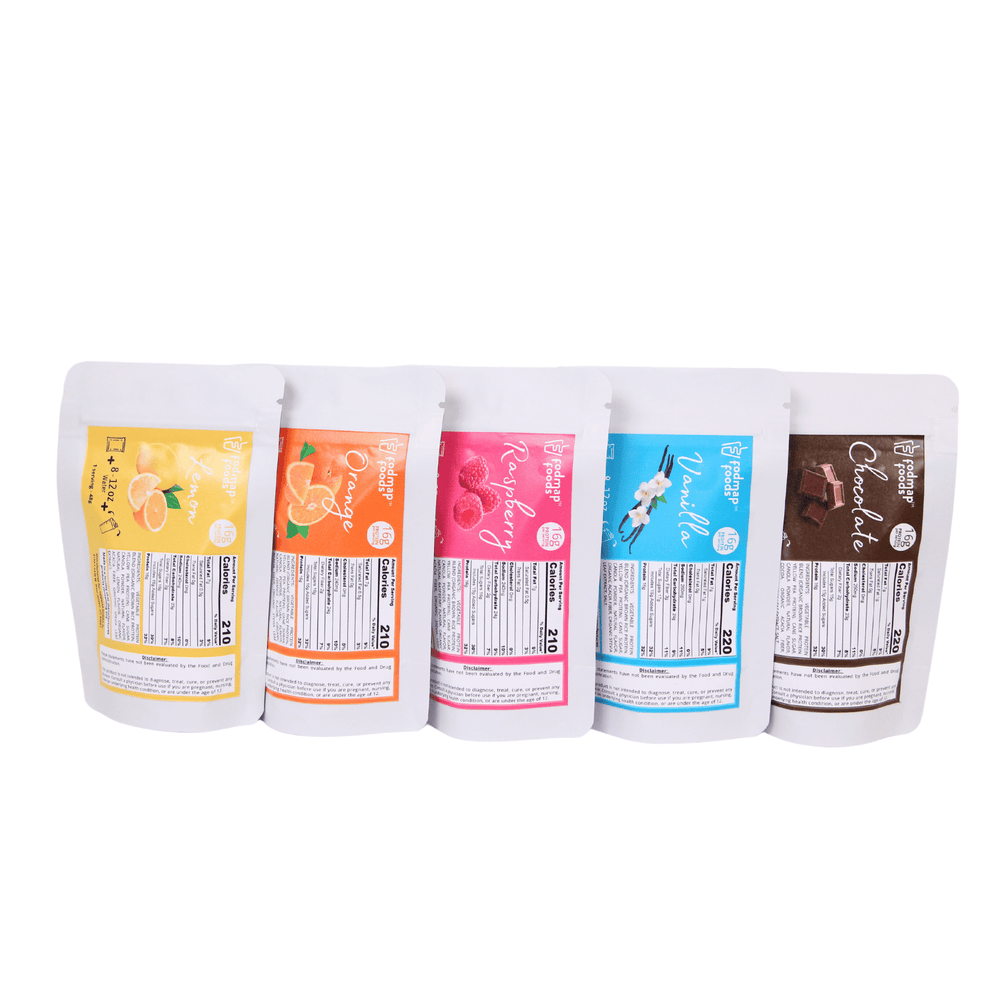Understanding SIBO. Symptoms, Diagnosis, and Management

Understanding SIBO

If you've been experiencing persistent bloating, stomach pain, or digestive troubles, there’s a chance you may be dealing with SIBO. SIBO means Small Intestinal Bacterial Overgrowth. SIBO is fairly common and impacts digestion in ways that can feel overwhelming. Let’s break down what SIBO is, how it impacts the gut, and how to go about managing it.
What is SIBO?

SIBO stands for Small Intestinal Bacterial Overgrowth, which essentially means there’s an excessive amount of bacteria in your small intestine. Normally, bacteria are more concentrated in the large intestine where they help break down food and absorb nutrients. With SIBO however, bacteria migrate or multiply in the small intestine, where they don’t belong in such high numbers. Excess bacteria leads to some unpleasant digestive symptoms.
The bacteria in your small intestine digest carbohydrates and convert them into gas and short chain fatty acids. When more bacteria are present and feasting on the food you eat, this leads to fermentation (Fermentation in your gut is a natural process where bacteria help break down food that your body can’t digest itself. As they digest the food, they produce energy for themselves and release gases, like hydrogen, carbon dioxide, and sometimes methane as byproducts. These gases can accumulate in your digestive system and lead to gas and bloating. The buildup of gases can make your abdomen feel stretched or swollen. The bacteria also consume proteins and vitamin B12 meant for your body, which can lead to poor digestion and poor absorption of nutrients. This can result in a variety of gastrointestinal symptoms and malnutrition in the long term.
Common Symptoms of SIBO

SIBO symptoms can vary but often include:
- Bloating and gas: Many people with SIBO feel uncomfortably bloated, even hours after eating.
- Abdominal pain or discomfort: This is due to the bacteria producing gas and other by-products in the small intestine.
- Diarrhea or constipation: SIBO can cause irregular bowel movements that range from loose stools to constipation.
- Fatigue and brain fog: Because nutrient absorption is impacted, you may feel tired or foggy-headed.
- Malnutrition and weight loss: In severe cases, the inability to absorb nutrients properly can lead to weight loss and deficiencies.
These symptoms aren’t unique to SIBO, which is why diagnosis can sometimes be tricky. For a more comprehensive list of symptoms, check out resources from the [Mayo Clinic](https://www.mayoclinic.org/),
How is SIBO Diagnosed?

If SIBO sounds like something you might be dealing with, a doctor can help with a proper diagnosis. One of the most common tests for SIBO is a breath test. This test measures the amount of hydrogen and methane in your breath after consuming a sugary drink. Since bacteria produce these gases, high levels may indicate bacterial overgrowth.
Blood tests, stool tests, and imaging tests can also play a role in ruling out other conditions and identifying nutrient deficiencies caused by SIBO. For more detailed diagnostic information, visit www.fodmapeveryday.com, an expert in digestive health and the low FODMAP diet, has fantastic insights on SIBO testing and management strategies.
Managing and Treating SIBO

Once diagnosed, managing SIBO typically involves a combination of dietary changes, antibiotics or herbal antimicrobials, and sometimes probiotics.
- Antibiotics and Herbal Antimicrobials: Physicians may prescribe antibiotics like rifaximin, which target bacteria in the gut with minimal side effects. Some people also use herbal antimicrobials like oregano oil or berberine, but it's essential to talk to a healthcare provider before starting any new treatment.
- Dietary Changes: Diet plays a huge role in managing SIBO. Many people start with an elimination diet to limit fermentable carbohydrates that bacteria love to eat. One of the most popular dietary approaches for SIBO is the low FODMAP diet, which stands for fermentable oligosaccharides, disaccharides, monosaccharides, and polyols. These are certain types of carbs that can worsen bloating and gas. Our meal replacement shakes were designed as a quick, simple solution to help with the elimination diet. They are certified low FODMAP and are macro balanced to provide a simple, delicious meal.
- Probiotics and Prebiotics: Probiotics can sometimes help restore a healthy bacterial balance, although the choice of strain and dosage is crucial because some probiotics can worsen symptoms. Prebiotics feed good bacteria but can also be problematic for people with SIBO, so they’re usually avoided until symptoms improve.
- Lifestyle Adjustments: Managing stress and getting regular exercise are also helpful, as stress and inactivity can slow digestion and worsen symptoms. A healthy lifestyle can help your gut’s natural motility, which clears bacteria out of the small intestine.
For more information on managing SIBO through diet, the Mayo Clinic and Dede Wilson both offer valuable, science-backed resources.
Why Our Shakes Are Perfect for SIBO Management
Navigating an elimination diet for SIBO can feel like a minefield since many common foods can trigger symptoms. That’s where our shakes come in. They are certified low FODMAP and free from common allergens, providing a gut-friendly source of nutrition. They are designed for those with sensitive digestive systems and provide nutrients without the ingredients that typically aggravate SIBO.
Whether you're looking for a quick meal option or a safe source of protein, our shakes fit seamlessly into your SIBO management plan, giving you a convenient and tasty solution that’s easy on the gut.
SIBO can be challenging, so finding good resources to help you through it is important. For more help and information check out [FODMAP Everyday’s YouTube channel](https://www.youtube.com/channel/UC5-3gZUtZsTrsEtoVRngKug)
for expert tips and recipes, or explore the Mayo Clinic’s [digestive health resources](https://www.mayoclinic.org/).
Let us know if you have questions about our products or want guidance on incorporating them into your SIBO-friendly lifestyle.
Article References:
-
FODMAP Everday
-
Mayo Clinic https://www.mayoclinic.org
-
Johns Hopkins Medicine [here](https://www.hopkinsmedicine.org/).
-
Cleveland Clinic (https://my.clevelandclinic.org/).
These sources, along with Mayo Clinic and Dede Wilson, offer a solid foundation of reliable information for your readers.








Leave a comment